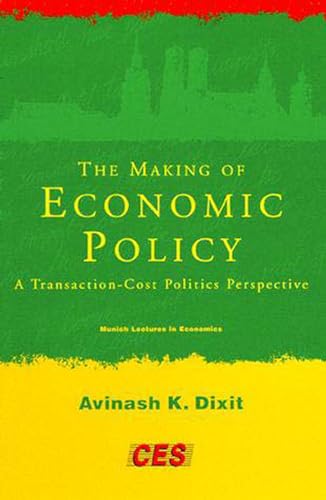The Making of Economic Policy begins by observing that most countries' trade policies are so blatantly contrary to all the prescriptions of the economist that there is no way to understand this discrepancy except by delving into the politics. The same is true for many other dimensions of economic policy.
Avinash Dixit looks for an improved understanding of the politics of economic policy-making from a transaction cost perspective. Such costs of planning, implementing, and monitoring an exchange have proved critical to explaining many phenomena in industrial organization. Dixit discusses the variety of similar transaction costs encountered in the political process of making economic policy and how these costs affect the operation of different institutions and policies.
Dixit organizes a burgeoning body of research in political economy in this framework. He uses U.S. fiscal policy and the General Agreement on Tariffs and Trade (GATT) as two examples that illustrate the framework, and show how policy often deviates from the economist's ideal of efficiency. The approach reveals, however, that some seemingly inefficient practices are quite creditable attempts to cope with transaction costs such as opportunism and asymmetric information.
Copublished with the Center for Economic Studies and the Ifo Institute
Charlotte y Peter Fiell son dos autoridades en historia, teoría y crítica del diseño y han escrito más de sesenta libros sobre la materia, muchos de los cuales se han convertido en éxitos de ventas. También han impartido conferencias y cursos como profesores invitados, han comisariado exposiciones y asesorado a fabricantes, museos, salas de subastas y grandes coleccionistas privados de todo el mundo. Los Fiell han escrito numerosos libros para TASCHEN, entre los que se incluyen 1000 Chairs, Diseño del siglo XX, El diseño industrial de la A a la Z, Scandinavian Design y Diseño del siglo XXI.
